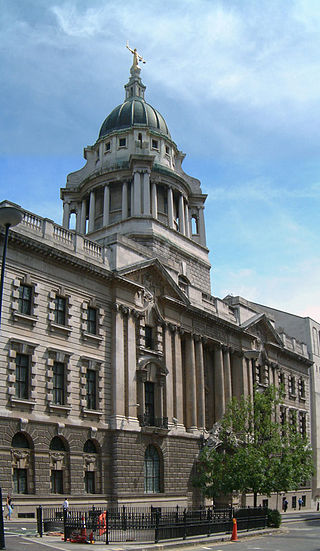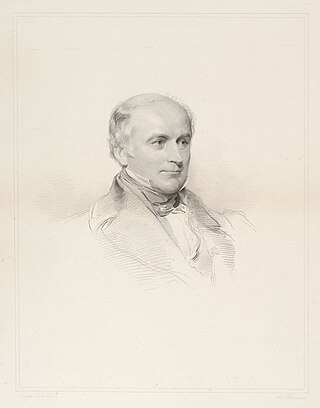
Trustee is a legal term which, in its broadest sense, is a synonym for anyone in a position of trust and so can refer to any individual who holds property, authority, or a position of trust or responsibility for the benefit of another. A trustee can also be a person who is allowed to do certain tasks but not able to gain income. Although in the strictest sense of the term a trustee is the holder of property on behalf of a beneficiary, the more expansive sense encompasses persons who serve, for example, on the board of trustees of an institution that operates for a charity, for the benefit of the general public, or a person in the local government.

Salomon v A Salomon & Co Ltd[1896] UKHL 1, [1897] AC 22 is a landmark UK company law case. The effect of the House of Lords' unanimous ruling was to uphold firmly the doctrine of corporate personality, as set out in the Companies Act 1862, so that creditors of an insolvent company could not sue the company's shareholders for payment of outstanding debts.

Foss v Harbottle (1843) 2 Hare 461, 67 ER 189 is a leading English precedent in corporate law. In any action in which a wrong is alleged to have been done to a company, the proper claimant is the company itself. This is known as "the proper plaintiff rule", and the several important exceptions that have been developed are often described as "exceptions to the rule in Foss v Harbottle". Amongst these is the "derivative action", which allows a minority shareholder to bring a claim on behalf of the company. This applies in situations of "wrongdoer control" and is, in reality, the only true exception to the rule. The rule in Foss v Harbottle is best seen as the starting point for minority shareholder remedies.

Bartlett v Barclays Bank Trust Co Ltd [1980] 1 Ch 515 in an English trusts law case. In it Brightman J gave a comprehensive discussion of the duties of trustees in connection with companies whose shares are part of the trust property. Although it is common to hear lawyers refer to "the rule in Bartlett v Barclays Bank", the case only restated law that had been accepted since Speight v Gaunt.

Re Atkinson, Barbers' Company v Grose-Smith [1904] 2 Ch 160 is an English trusts law case, which lays down a rule of equity relating to the disposition by the trustees of an authorised mortgage security where the security forms part of a trust fund, and the beneficiaries of the trust fund include a tenant for life and a remainderman. Where the security is sold and the proceeds are insufficient to satisfy the principal and interest in full, it is necessary to determine the way in which the loss shall be shared as between the tenant for life and the remainderman. The sum realised by the sale must be apportioned between the life tenant and the remainderman in the proportion that the amount due for the arrears of interest bears to the amount due in respect of principal.

English trust law concerns the protection of assets, usually when they are held by one party for another's benefit. Trusts were a creation of the English law of property and obligations, and share a subsequent history with countries across the Commonwealth and the United States. Trusts developed when claimants in property disputes were dissatisfied with the common law courts and petitioned the King for a just and equitable result. On the King's behalf, the Lord Chancellor developed a parallel justice system in the Court of Chancery, commonly referred as equity. Historically, trusts have mostly been used where people have left money in a will, or created family settlements, charities, or some types of business venture. After the Judicature Act 1873, England's courts of equity and common law were merged, and equitable principles took precedence. Today, trusts play an important role in financial investment, especially in unit trusts and in pension trusts. Although people are generally free to set the terms of trusts in any way they like, there is a growing body of legislation to protect beneficiaries or regulate the trust relationship, including the Trustee Act 1925, Trustee Investments Act 1961, Recognition of Trusts Act 1987, Financial Services and Markets Act 2000, Trustee Act 2000, Pensions Act 1995, Pensions Act 2004 and Charities Act 2011.

The three certainties refer to a rule within English trusts law on the creation of express trusts that, to be valid, the trust instrument must show certainty of intention, subject matter and object. "Certainty of intention" means that it must be clear that the donor or testator wishes to create a trust; this is not dependent on any particular language used, and a trust can be created without the word "trust" being used, or even the donor knowing he is creating a trust. Since the 1950s, the courts have been more willing to conclude that there was intention to create a trust, rather than hold that the trust is void. "Certainty of subject matter" means that it must be clear what property is part of the trust. Historically the property must have been segregated from non-trust property; more recently, the courts have drawn a line between tangible and intangible assets, holding that with intangible assets there is not always a need for segregation. "Certainty of objects" means that it must be clear who the beneficiaries, or objects, are. The test for determining this differs depending on the type of trust; it can be that all beneficiaries must be individually identified, or that the trustees must be able to say with certainty, if a claimant comes before them, whether he is or is not a beneficiary.

Armitage v Nurse [1997] EWCA Civ 1279 is the leading decision in English trusts law concerning the validity of exemption clauses. The Court of Appeal held that in English law trustee exemption clauses can validly exempt trustees from liability for all breaches of trust except fraud. Millett LJ gave the leading judgment.

Keech v Sandford[1726] EWHC J76 is a foundational case, deriving from English trusts law, on the fiduciary duty of loyalty. It concerns the law of trusts and has affected much of the thinking on directors' duties in company law. It holds that a trustee owes a strict duty of loyalty so that there can never be a possibility of any conflict of interest.

Boardman v Phipps [1966] UKHL 2 is a landmark English trusts law case concerning the duty of loyalty and the duty to avoid conflicts of interest.

Pender v Lushington (1877) 6 Ch D 70 is a leading case in UK company law, which confirms that a company member's right to vote may not be interfered with, because it is a right of property. Furthermore, any interference leads to a personal right of a member to sue in his own name to enforce his right. As Lord Jessel MR put it, a member:
has a right to say, "Whether I vote in the majority or minority, you shall record my vote, as that is a right of property belonging to my interest in this company, and if you refuse to record my vote I will institute legal proceedings against you to compel you."
Kirby v Wilkins [1929] Ch 444 is a UK company law and English trusts law case involving the duties owed by a nominee of shares to the beneficiary. It determines that a beneficiary, if absolutely entitled, can instruct a bare nominee how to deal with the shares. Pending any instructions about voting from the beneficial owner, the registered holder can vote shares in the beneficiary's interest.

Re Vandervell Trustees Ltd [1974] EWCA Civ 7 is a leading English trusts law case, concerning resulting trusts.
Discretionary trusts and powers in English law are elements of the English law of trusts, specifically of express trusts. Express trusts are trusts expressly declared by the settlor; normally this is intended, although there are situations where the settlor's intentions create a trust accidentally. Normal express trusts are described as "fixed" trusts; the trustees are obliged to distribute property, with no discretion, to the fixed number of beneficiaries. Discretionary trusts, however, are where the trustee has discretion over his actions, although he is obliged to act. The advantages of discretionary trusts are that they provide flexibility, and that the beneficiaries hold no claim to the property; as such, they cannot seek to control it, and it cannot be claimed for their debts. A power, or "mere power", on the other hand, is where not only does the holder have discretion over his actions, he has discretion over whether to act in the first place.

Oldham v Kyrris[2003] EWCA Civ 1506 is a UK insolvency law case concerning the administration procedure when a company is unable to repay its debts.

Foskett v McKeown[2000] UKHL 29 is a leading case on the English law of trusts, concerning tracing and the availability of proprietary relief following a breach of trust.

Pennington v Waine[2002] EWCA Civ 227 is an English trusts law case, concerning the requirements for a trust to be properly constituted, and the operation of constructive trusts. The case represents an equitable exception to the need for a complete transfer of property in law.
McDonald v Horn [1995] 1 All ER 961 is an English trusts law case on pensions, relevant for UK labour law. It enables the beneficiaries of a pension fund to be indemnified for costs in bringing actions for breach of trust, fiduciary duty or the duty of care against the trustees or directors of a pension fund.

Byers v Saudi National Bank[2023] UKSC 51 is a decision of the Supreme Court of the United Kingdom in the long running litigation between the liquidators of SAAD Investments Company Limited and various parties relating to the alleged defrauding of the insolvent company by one of its principals.

McGaughey and Davies v Universities Superannuation Scheme Ltd and Directors [2023] EWCA Civ 873 is a UK company law, climate litigation, and pension law case, seeking permission for a derivative claim to enforce duties of the directors of the UK university pension fund, USS Ltd. The case was first to sue for directors of a major UK corporation to divest fossil fuels, and is the first case of beneficiaries of a pension corporation bringing a derivative claim for breaches of directors' statutory duties.

















